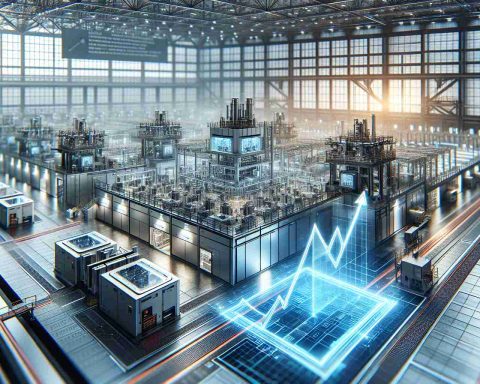A groundbreaking solution has been introduced by Bornova Municipality to swiftly detect and resolve urban road issues, heralding a new era in city maintenance. This innovative system, named ‘Urban Insight,’ combines artificial intelligence and image processing technologies to continuously monitor the condition of roads. Detecting potholes, speed bumps, and drains in real-time using the YOLOv8-based object detection model, Urban Insight promptly transmits this data to the Information Technology Department. The information is then processed onto maps and forwarded to the Department of Civil Works. The dedicated teams proactively address these issues without waiting for public complaints, ensuring rapid solutions.
Embracing the promise of technology, Mayor Ömer Eşki emphasized the significance of this initiative in enhancing urban transportation quality within Bornova. “Urban Insight is a system developed to enhance both the safety of our citizens and the quality of services provided by the municipality. We aim to swiftly and effectively resolve the problems faced by our citizens through this application. We will continue investing in such technological advancements to make Bornova an even more livable city,” Mayor Eşki stated, underlining the commitment to creating a more sustainable and efficient urban environment.
Revolutionizing Urban Maintenance: Maximizing Efficiency and Sustainability Through Technological Advancements
In the realm of urban maintenance and city management, cutting-edge technology continues to play a pivotal role in transforming traditional approaches. While the ‘Urban Insight’ system introduced by the Bornova Municipality exemplifies the innovative use of AI and image processing for road maintenance, there are additional facets to consider in the broader context of revolutionizing urban infrastructure management.
One crucial question that arises is the scalability and adaptability of such technology across different urban landscapes. Can similar systems be implemented in larger metropolises with varying infrastructural complexities? The answer lies in the scalability of the underlying technology and the customization capabilities to suit diverse urban environments. While the principles of AI and image processing remain constant, the challenge lies in tailoring the system to address the unique maintenance needs of different cities.
Moreover, a key challenge associated with the integration of advanced technology in urban maintenance is the initial investment and ongoing maintenance costs. Municipalities must weigh the advantages of swift issue detection and resolution against the financial implications of implementing and sustaining such systems. Budgetary constraints and the need for skilled personnel to operate and interpret the data generated are critical factors to consider.
On the other hand, the advantages of leveraging cutting-edge technology in urban maintenance are multifaceted. Beyond the immediate benefits of quick problem resolution and enhanced citizen safety, these systems have the potential to optimize resource allocation, minimize downtime, and improve overall infrastructure longevity. The real-time monitoring capability empowers municipal authorities to proactively address maintenance issues, ultimately leading to smoother urban operations and enhanced resident satisfaction.
However, it is essential to acknowledge the disadvantages that come with the reliance on technology for urban maintenance. Potential concerns revolve around data privacy and cybersecurity risks, especially when collecting and transmitting sensitive information about infrastructure conditions. Ensuring robust data protection measures and regular system audits are imperative to mitigate these risks and build public trust in the technology-driven maintenance processes.
In conclusion, the landscape of urban maintenance is undergoing a profound transformation through the integration of cutting-edge technology. While the ‘Urban Insight’ system sets a precedent for proactive infrastructure management, there are critical considerations regarding scalability, cost-effectiveness, and data security that urban planners and policymakers must address. By navigating these challenges and harnessing the benefits of technological advancements, cities can pave the way for more efficient, sustainable, and resilient urban environments.
For further insights on urban innovation and smart city solutions, visit Smart Cities World.

















